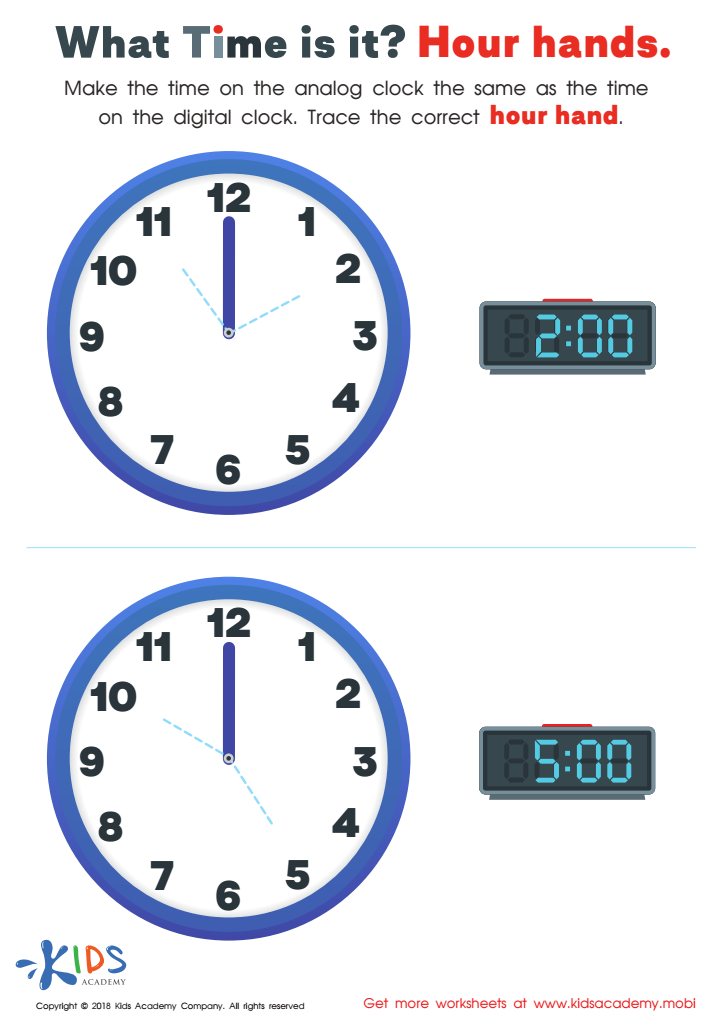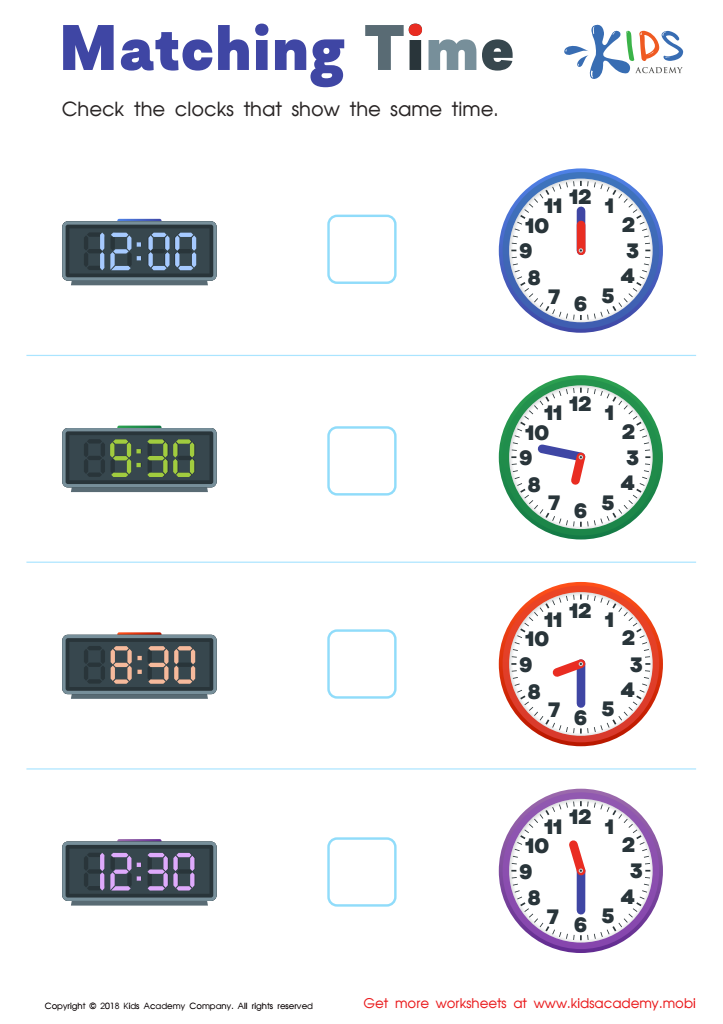Reading clocks Time Worksheets for Ages 5-6
3 filtered results
-
From - To
Unlock the world of time-telling with our Reading Clocks Time Worksheets, specially designed for ages 5-6! These engaging and educational resources help young learners master the basics of reading both analog and digital clocks. Easy-to-follow exercises offer plenty of practice in identifying hours and minutes, ensuring kids build confidence while having fun. With colorful illustrations and interactive activities, our worksheets make it easy for children to grasp the concept of time. Download now to provide your child with the foundational skills they need for lifelong time management and success! Make learning to read clocks an exciting adventure.


Years Worksheet


What Time Is it? Hour Hands Worksheet


Matching Time Worksheet
Teaching children aged 5-6 to read clocks is a vital milestone in their early development, promoting both practical life skills and cognitive growth. Understanding the concept of time helps children develop their sense of routine and structure, essential for fostering discipline and time management skills. These early habits can enhance their academic and personal lives, helping them succeed in school and tasks at home.
Reading clocks also boosts cognitive skills such as number recognition, counting, and basic arithmetic since children need to understand sequences and numerical patterns. It can enhance their fine motor skills as they learn to draw clock hands or use analog clocks. Additionally, mastering time-telling cultivates their sense of independence and responsibility. Young learners gain confidence as they begin managing small tasks, like knowing when it's time for bed, school, or play, boosting their self-esteem.
Equally important, this early skill lays a foundation for future learning, making it easier for students to grasp more complex mathematical and scientific concepts later. By taking an active role in helping children learn to read clocks, parents and teachers contribute significantly to their overall educational experience, preparing them for a more organized and successful future.
 Assign to My Students
Assign to My Students




















